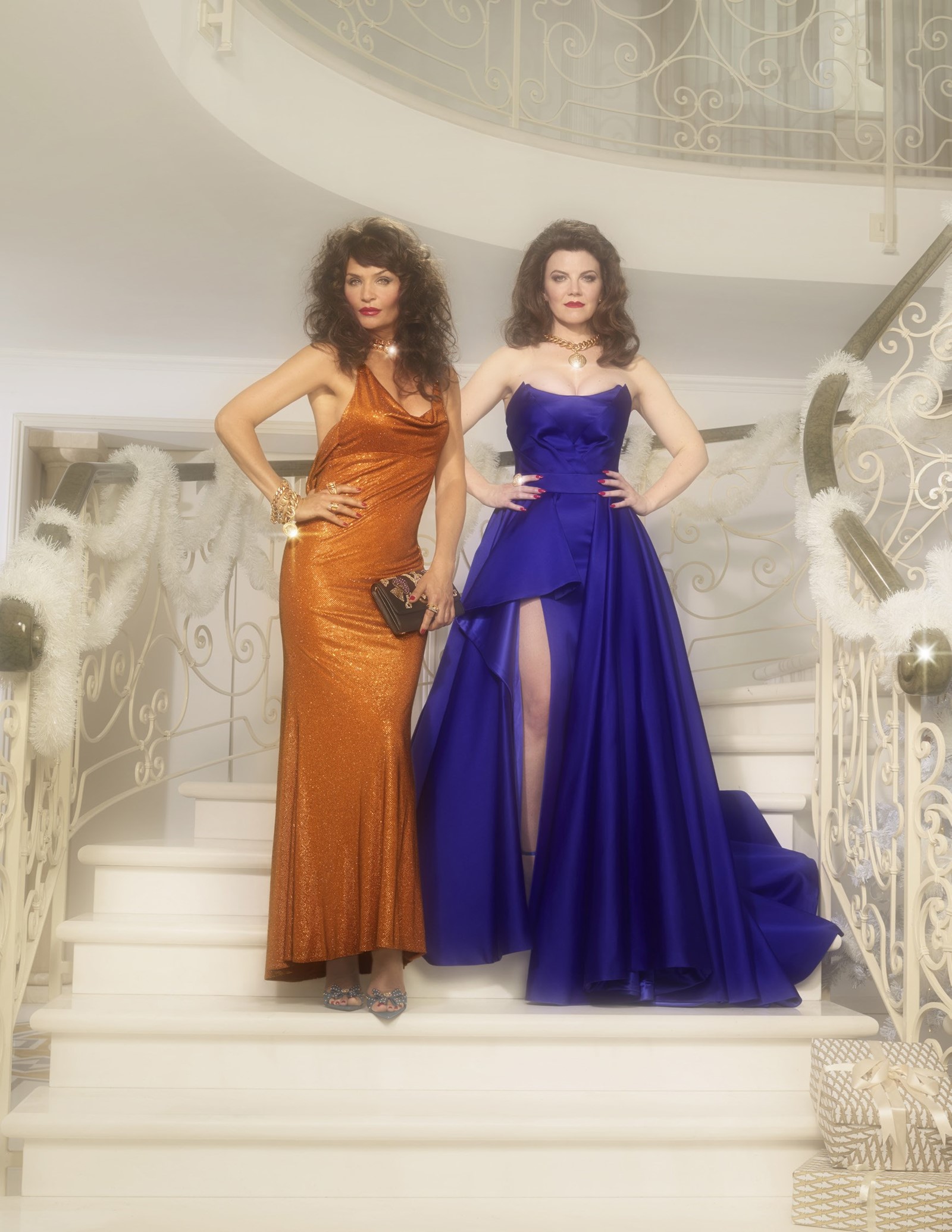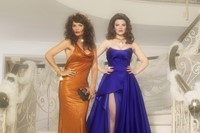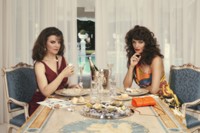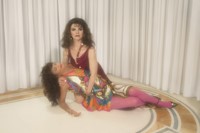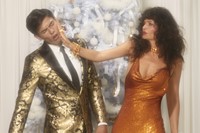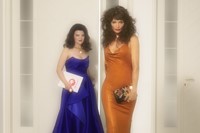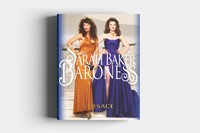When Dazed & Confused editor-in-chief Isabella Burley and I launched Baroness in 2016, our goal was to challenge stereotypical depictions of female sexuality. The debut issue, which included contributions by Harley Weir and Eloise Parry, explored the male nude over 200 pages of penises, submissiveness, waxed chests, jockstraps and butts. Back then, Isabella wrote in New York Magazine, “Baroness is informed by the females Matthew and I are fascinated with, like Donatella Versace – women who know exactly what they want and have men begging at their feet”.
Fast forward to the summer of 2019 and standing in front of me on a hot summer’s day, surrounded by gym-fit male assistants, who are all dressed in black, carrying her bag, phone and water bottle, is the source of our inspiration – Donatella Versace. “Slap him Helena, come on,” she shouts.
We are shooting the next issue of Baroness, of which Donatella has agreed to be our guest editor. The book is the result of a collaboration with the performance artist Sarah Baker, who has written a Jackie Collins-style, sassy romantic novel, accompanied by beautiful photography. Following the lives of five outrageous characters, as they navigate tumultuous affairs, the story begins when American music mogul Angelina receives an unwanted holiday gift, inadvertently opening a sordid, seasonal tale of tangled lies and treachery. Everything is at stake: Angelina’s freedom, the loyalty of her daughter, her friendship with the baroness, and – worst of all – the royalties from her hit single, Spritz Me with Your Love.
The story challenges representations of powerful women being ‘bitches’; women who will use everything at their disposal to get what they want. It subverts this tired narrative and instead the central female characters work collaboratively to deal with blackmail and deceit.
The representation of successful women in popular culture has been a theme long investigated in Baker’s body of work. Baker’s first solo show, upon graduation from Goldsmiths University London, included a film titled A Portrait of Bill May investigating a male synchronised swimmer, who was unable to compete in the Olympics because he was a man. The film follows the swimmer on his daily routine accompanied by the female-led USA Olympic team. In a more recent work, Studs, Baker appropriates a Jackie Collins book and film, and plays Fontaine Khaled – a nightclub owner, who has a lust for submissive men.
It’s 40 degrees, I am sweating, and Donatella is really getting into this scene: “Come on, harder Helena”. Donatella has cast Helena Christensen – “Helena was an inspiration for Gianni” – who she has worked with since the 90s. Today, Helena is playing a character, aptly named the baroness, and we are shooting a very dramatic scene: the baroness is confronting Jacob for trying to swindle Angelina and she is pretending to slap Jacob, which proves tricky.
Helena Christensen is also a photographer, shooting fashion and documentary images. I am interested in her thoughts about the theme of the book, from a photographer’s perspective and as a subject.
Matthew Holroyd: Why do you think successful women are sometimes depicted as bitches, while their male equivalents are hailed as leaders?
Helena Christensen: It must be men depicting female leaders as such. Could it be ignorance, chauvinism, lack of self-respect, self-confidence...? Or is it that history was mostly about male leaders up until not so long ago and that any major changes to what we are used to scares us? A woman is capable of handling so many things at the same time, she is able to confront myriad obstacles simultaneously and those are very powerful traits. Women, like men, are excellent leaders.
MH: Have you ever been stereotyped as a bitch?
HC: I have not, as far as I know. I’m a very mellow person who believes that a psychological approach to any issue or confrontation is the smartest way to go.
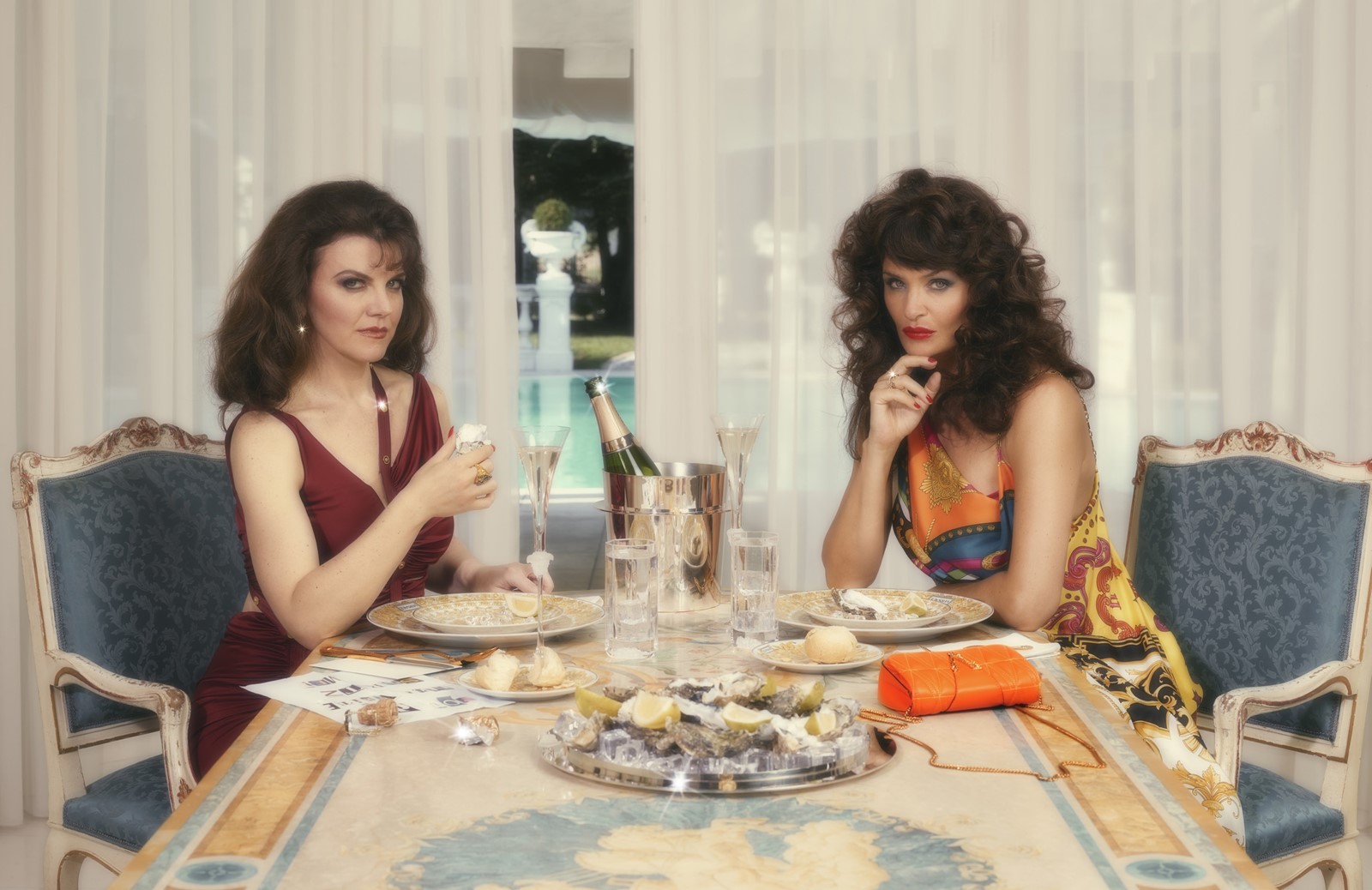
MH: How do you think the ‘bitch’ as a slang word has been reclaimed by women?
HC: Women are not easily swayed or manipulated. If strong, powerful women are looked upon as bitches then, cool, let’s take that word and make it ours. Bitches are cool.
MH: Simone de Beauvoir argued in The Second Sex that religion, visual culture, literature, science and academia have created a world where women have been portrayed as ‘naturally’ inferior in order to rationalise male domination and power. What are your thoughts on this?
HC: This absolutely has been the case. In many ways, and because of that, women are also ‘naturally’ breaking out of this box. There needs to be balance for anything to evolve and flourish. No sex is the dominant one. It’s pathetic to believe so. It’s ignorant and an extremely narrow-minded belief that hails from a stale, conservative mindset. No one sex can survive and thrive without the other. Equality is key.
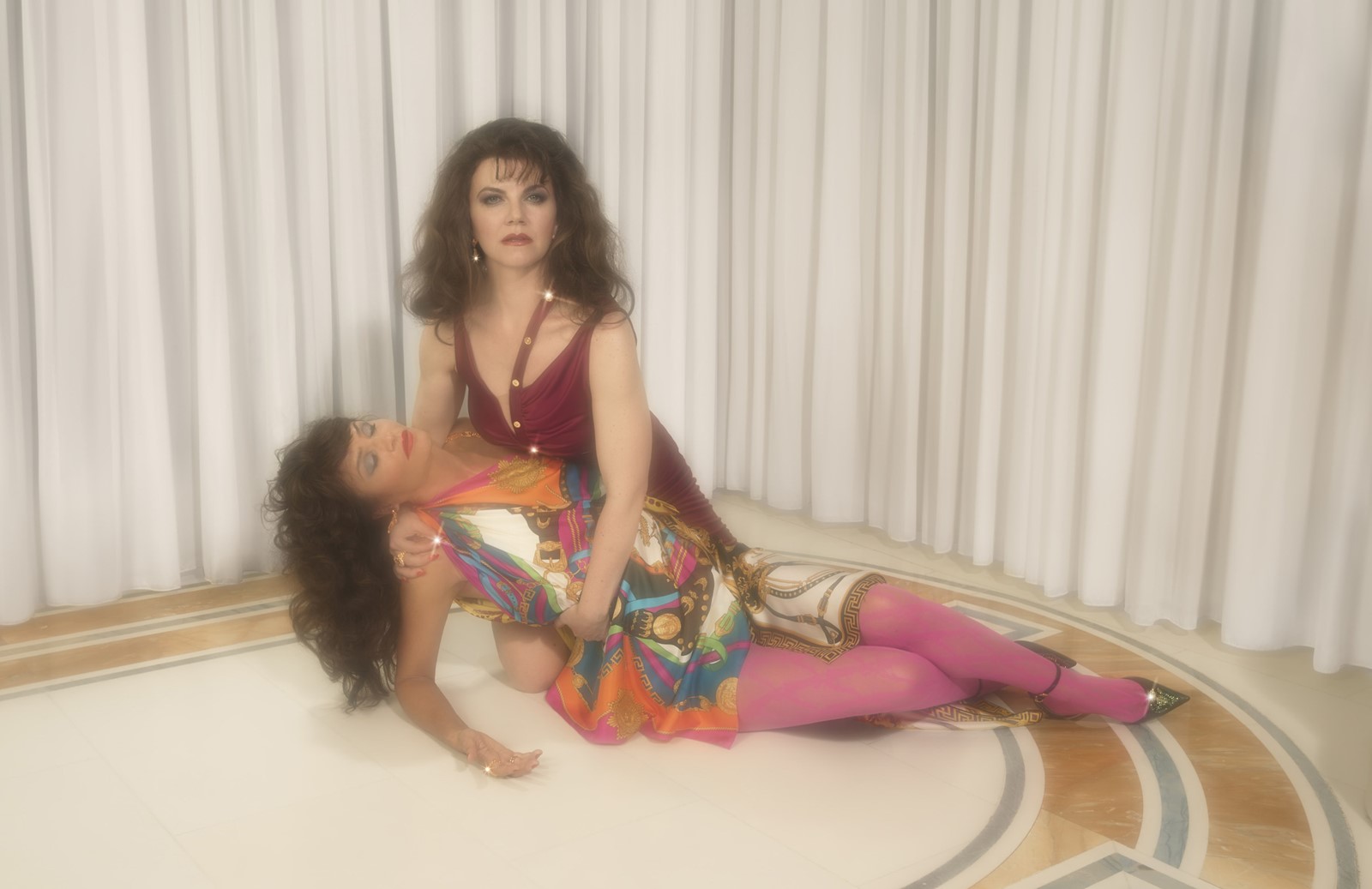
MH: In your work on both sides of the camera as a model and photographer, how have these power structures affected you?
HC: I have never even really considered it. I somehow subconsciously rose above it. So, I don’t encounter it. To me, it’s about possessing a talent, having an eye, approaching both sides with empathy, grace and an open mind. I give equally as much on one side as on the other, whether I’m working with women or men. If there is an imbalance in the ratio of men and women in the business, then let’s not immediately blame men for that. The male photographers I have worked with in my long career have their position because of their talent. Having said that, I am working more and more with women because I find their eye more curious, rawer and more honest and there’s a tenderness among women working together.
MH: I am interested in the critique of a fashion model; this criticism tends to focus on female models. There is a lot of debate about how female models should look.
HC: In this business everyone is judged. If you can’t handle it then stay away. Honestly. You need a huge amount of confidence and sarcasm to deal with the strangeness of being in the fashion world. This is a business with more female models than male ones, so the focus will be on women. What always flabbergasts me is how narrow-minded the business is in regard to female body types. As a photographer I find all shapes interesting and beautiful in their own way.
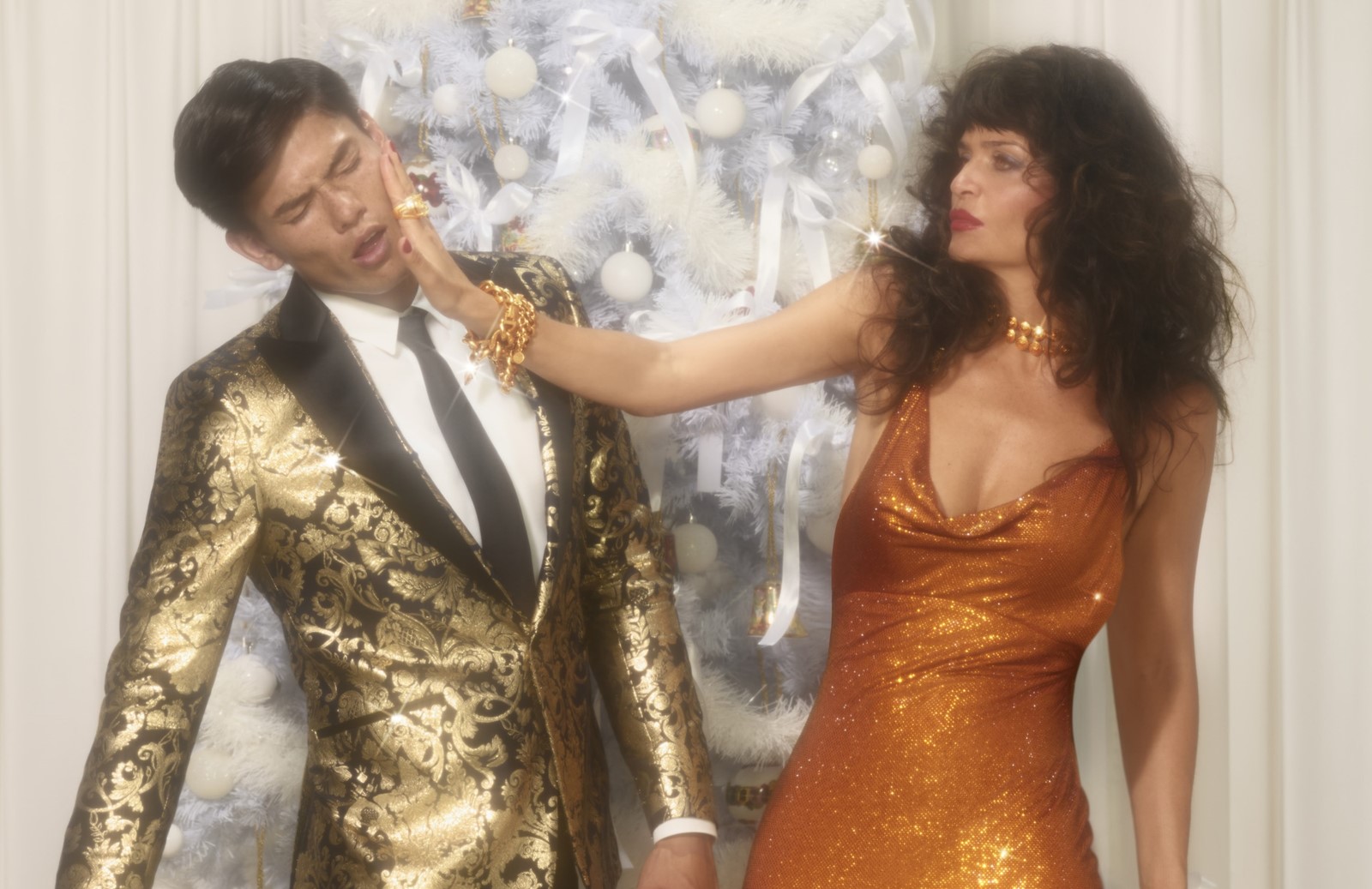
MH: In your work as a fashion designer, photographer and model, how do you think fashion imagery can empower women?
HC: Women are so talented. That in itself is enough of an answer. It should never be about whether men or women are the ones in power. It should be about the individual and their ability to create, influence, inspire and empower others to do the same. This business is full of talented women. I’m a global UNHCR ambassador and the last refugee camp we visited had a group of women working as designers and seamstresses, they supported each other, helped each other take care of their children, they shared their income.
MH: The character you play in Baroness by Sarah Baker is the baroness. The character is based on another baroness from the screen play and book The Sound of Music. The baroness is demonised in The Sound of Music; however, I would argue that she is the heroine, she accepts Maria’s affair with the count and is abused throughout the book by the count’s children, who poke fun at her for being successful, intelligent and sophisticated. Are there any other female characters in popular culture that you feel are demonised and that you find inspirational?
HC: Throughout history countless female artists have stood in the shadow of their famous artist men, female writers were invisible next to their successful writer husbands and so on. Isn’t it about time that men and women join this fight together and raise each other up? Do you enter a personal relationship by squashing your partner’s talent, hopes and dreams? No, you encourage them and love and respect them for exactly those. This world is one big relationship between men and women, let’s show each other some respect and grace.
MH: What were your favourite moments in playing the baroness?
HC: Handing out that slap and pretending to eat oysters with Sarah.
Matthew Holroyd is the creative director and founder of Baron and Baroness Magazines. Pre-order Baroness by Sarah Baker now.
